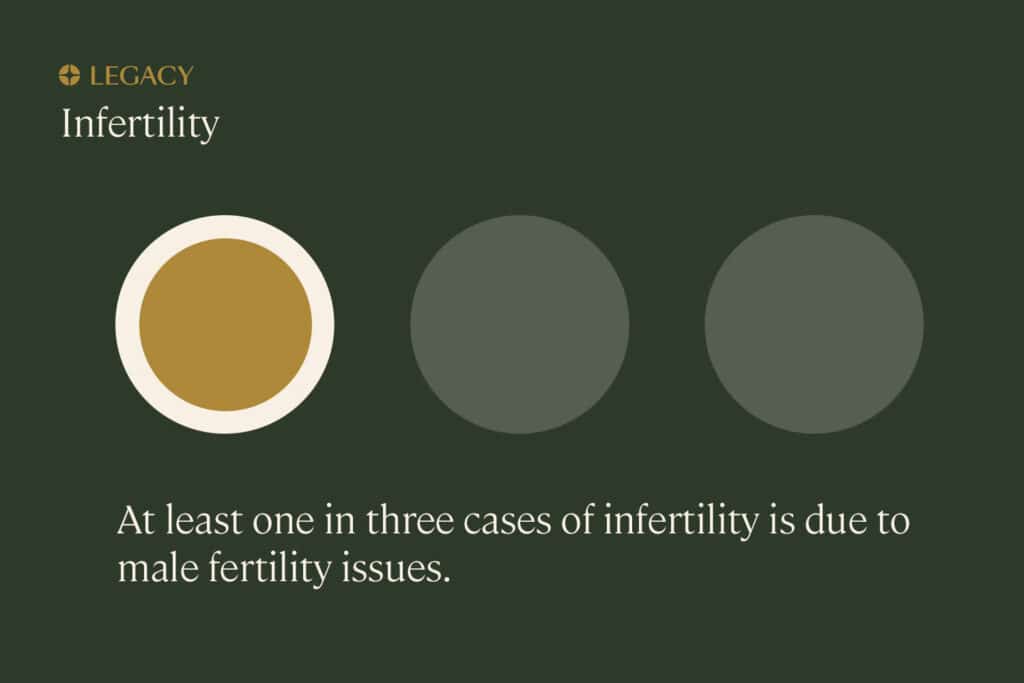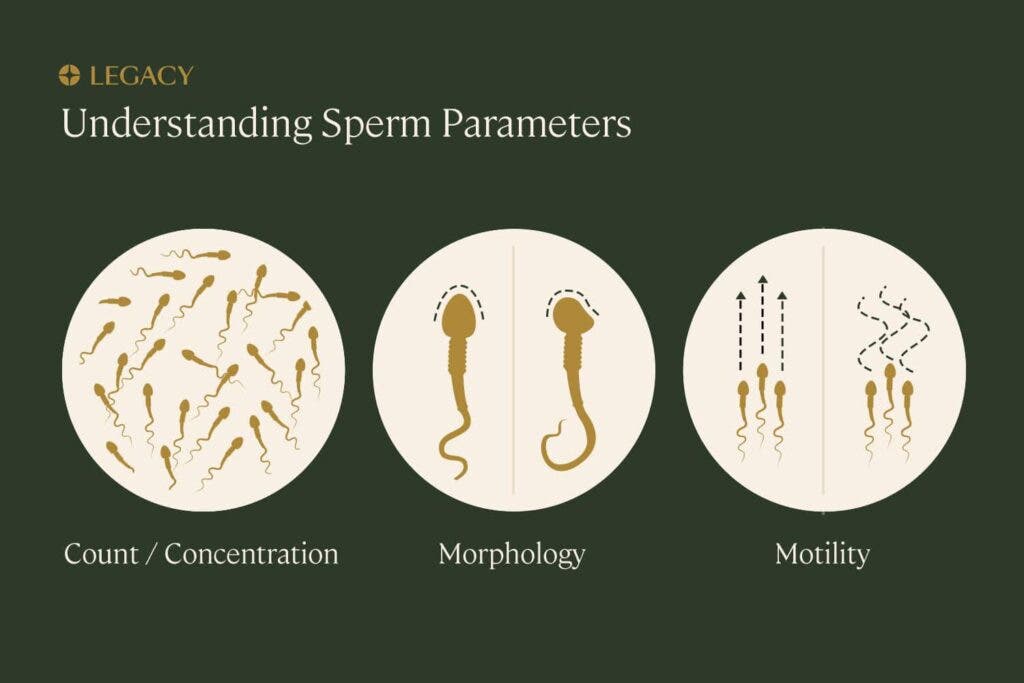After 6–12 months of trying to get pregnant to no avail, you may decide it’s time to see a fertility specialist or reproductive endocrinologist. It’s normal to experience strong emotions before your appointment, or to feel anxious.
Understanding what the first consultation with a reproductive endocrinologist entails may help settle your nerves. Here’s what to expect, plus answers to some of the common questions about fertility specialists.
What is a reproductive endocrinologist?
A reproductive endocrinologist may also be referred to as a fertility specialist, fertility OB/GYN, or fertility doctor. If you are searching for a doctor within your insurance network, you should browse or filter for “reproductive endocrinologist” or “reproductive endocrinology and infertility.”
Reproductive endocrinologists are OB/GYNs that have gone through additional training to gain more expertise in the field of both female and male fertility. This training includes learning to treat infertility and perform procedures such as in vitro fertilization and egg freezing.
REIs as they’re sometimes called (for “reproductive endocrinology and infertility”) get their bachelor’s degree and their medical degree, like all doctors. Then, they do a 3–5 year residency program in obstetrics and gynecology, where they get hands-on practice with prenatal care, pregnancy and delivery, and pelvic surgery. Finally, they complete a subspecialty fellowship in reproductive endocrinology and infertility, for a total of about 15 years of post-secondary education.
In addition, fertility specialists need to pass two board exams — one for OB/GYN, and one for REI. They’re often described as “double-board-certified.” Reproductive endocrinologists typically work at practices called fertility clinics or “IVF clinics.”
Reproductive endocrinology vs. endocrinology
You’ve likely heard the terms “fertility specialist” or “fertility doctor” more often than “reproductive endocrinologist.” What does “endocrinology” even mean? Endocrinologists are medical doctors who study and specialize in the endocrine system, the messenger system that comprises all of the body’s different hormones.
The endocrine system plays a vital role by regulating key areas of life, like growth and development, metabolism, blood sugar, sleep, and the reproductive system. Each of these key areas are either driven or influenced by hormones, and a disruption in healthy hormone levels can cause health issues. Reproductive endocrinologists are experts in the hormones that drive fertility.
Endocrinologists and REIs sometimes work together, such as to treat cases of infertility that are related to a patient’s diabetes or thyroid issues.
Who should see a reproductive endocrinologist?
If you are a heterosexual, cisgender couple who has been actively trying to conceive for 12 months without success, or 6 months if over the age of 35, then you may want to see a reproductive endocrinologist for a consultation.
This doesn’t mean you’ll necessarily be diagnosed with infertility, or that you’ll immediately be pushed to do IVF. It just means that a doctor will help assess the factors that might be preventing you from getting pregnant on your own, and suggest changes or treatment that can improve your chances.
Some may want to see a reproductive endocrinologist earlier in the process of trying to conceive. This includes:
- Anyone who has a medical condition that may affect fertility, such as PCOS, endometriosis, or genetic disorders
- People who have experienced two or more consecutive miscarriages
- LGBTQ couples who know they’ll need donor sperm, donor eggs, or a surrogate to have a baby
- Single people who want to become parents
Reproductive endocrinologists can also help individuals and couples who are hoping to preserve their fertility — maybe because they’re not ready to have kids right now, or because they’re about to undergo medical treatment such as chemotherapy. Fertility preservation options include egg freezing, embryo freezing, and sperm freezing.
Sperm freezing doesn’t require a clinic! Learn more about sperm freezing from home.
Should I see a reproductive endocrinologist, a urologist, or both?
If you are a person with sperm who has been struggling with fertility, you may also want to see a urologist.
Urologists are experts in the genito-urinary system, including the male (or assigned-male-at-birth) reproductive system (the penis and testicles). Urologists treat male-factor infertility, varicocele, erectile dysfunction, retrograde ejaculation, cancer, and other diseases, as well as perform vasectomies and vasectomy reversals.
You might see a urologist if:
- You’ve had multiple abnormal semen analyses
- You’ve been diagnosed with a hormone imbalance such as testosterone deficiency
- You’ve experienced erectile or ejaculatory dysfunction
- You have pain or swelling in the testes, scrotum, or penis
Some couples with male-factor fertility issues see both a urologist and a reproductive endocrinologist, who work in tandem to help the couple get pregnant. Many IVF clinics even have one or more urologists on staff.
Learn what to expect at your first urology appointment.

Should both partners go to a reproductive endocrinologist consultation?
Yes, it’s always a good idea for both partners to go to the first reproductive endocrinologist appointment.
While many may be under the assumption that infertility is a “women’s problem,” both sexes can contribute to infertility. According to the CDC, over 40% of infertility cases involve male-factor infertility. Achieving pregnancy takes two, and either partner or both partners may have a condition that makes pregnancy difficult to achieve. Reproductive endocrinologists will perform evaluations and order tests for both partners.
Even if you have a strong feeling that the infertility isn’t “caused” by you, you can provide your partner with support during this stressful time by showing up and participating in the appointment.
What to expect at a reproductive endocrinologist consultation
A discussion of your medical and sexual history
Most consultations start with or include a sit-down discussion with the fertility doctor. Be prepared to answer a lot of questions about your medical history, lifestyle, and your attempts to get pregnant, including:
- History of diseases or medical treatments known to affect fertility, such as chemotherapy and STIs
- Details on past pregnancies or pregnancy losses, if applicable
- Your lifestyle factors that may affect fertility, such as cigarette and drug use, drinking, diet, exercise, and occupation
- Data about previous months spent trying to conceive, including menstrual cycle tracking, sexual frequency/issues, and the results of any at-home ovulation tests
Remember, this is a judgment-free zone. Your doctor needs to compile accurate data to get a clear picture of what could be happening and how they can help, so it’s important that you’re as honest as possible — it all stays between you and your doctor.
Diagnostic testing
Depending on your individual situation, your reproductive endocrinologist may perform some imaging tests, draw blood work, or order other tests. It’s fairly common for doctors to order blood work for one or both partners to measure levels of hormones that drive fertility.
For partners with testes, a reproductive endocrinologist may order a semen analysis if one has not yet been done. Learn more about sperm testing.

A physical exam
Many reproductive endocrinologists will perform a physical exam of the partner with ovaries, including an ultrasound to get a look at the ovaries, uterus, and fallopian tubes.
What happens after a fertility consultation?
Depending on the results of your discussion and exam, some doctors may have enough information to diagnose you with infertility. Others may be able to give you actionable steps to improve your chances of conceiving, even before you get an official diagnosis.
But, don’t be surprised if they don’t yet have enough information during your first visit to confirm your next steps. You may need to wait for the results of blood work or other testing, or get additional information, before you can start a treatment plan with your fertility specialist.
Cost of a reproductive endocrinologist consultation
The fees for a fertility consultation include the appointment itself plus the fees for each test performed or ordered, like ultrasounds, blood tests, and semen analyses. The total cost for the visit may be $200–$400; the lab tests can cost anywhere from $100 to $600 or more.
The out-of-pocket cost of seeing a reproductive endocrinologist will vary based on your location and your insurance plan coverage details. Unfortunately, not every insurance plan includes coverage for fertility care. It’s a good idea to review your benefits plan on your own or with a clinic’s financial advisor before your appointment, to avoid any surprise fees.
If you do not have insurance or your insurance doesn’t cover fertility care, you can call clinics and compare self-pay prices for your consultation.
Preparing to see a reproductive endocrinologist
When you make your appointment, ask if there’s anything you should do ahead of time to prepare, or bring with you on the day of your appointment. Your appointment coordinator may have suggestions for documents that would be helpful to bring along, such as medical records, semen analysis reports, or notes about cycle tracking.
Doing some simple tracking or testing on your own can help speed up the process of getting a diagnosis.
People with ovaries should keep a record of their menstrual and ovulation cycles. They might also monitor ovulation using at-home prediction kits or basal body temperature tracking.
People with testes can prepare by getting a semen analysis before their appointment. In many cases, if sperm quality parameters are abnormal after an analysis, your doctor will order a second test to confirm. By doing an analysis proactively, you can expedite that process and get recommendations from your doctor sooner.